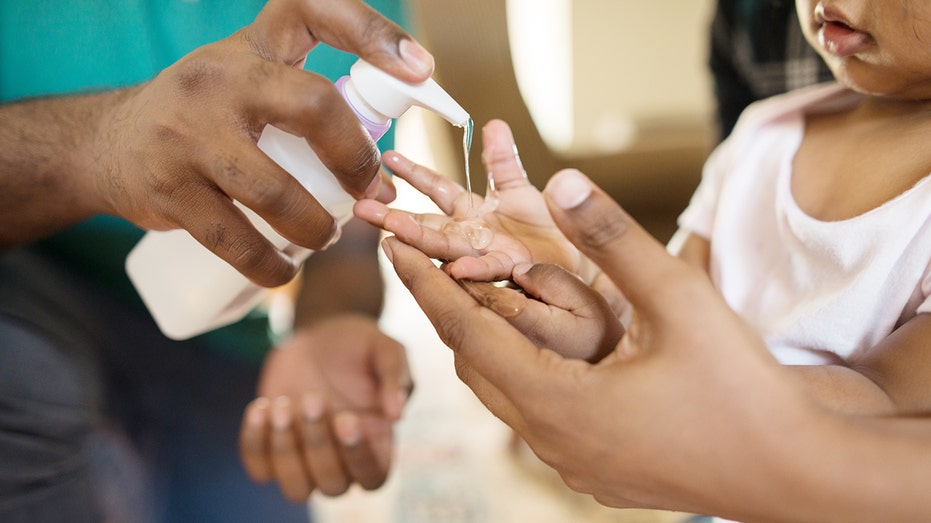What to look for in a hand sanitizer
Hand sanitizers that use benzalkonium chloride won't be as effective
When choosing a safe and effective hand sanitizer, health experts say it is important to pick one that is "predominately" alcohol-based with few other additives.
"It should contain at least 60% ethanol or 70% isopropyl alcohol," Dr. Robert Glatter, an emergency physician at Lenox Hill Hospital in New York City, told FOX Business.
However, the sanitizer may also contain "glycerin, sterile distilled water, and hydrogen peroxide," Glatter said.
TOXIC HAND SANITIZER RECALL DUE TO 'DELIBERATE DECISION' BY MANUFACTURERS TO CUT COSTS
In fact, there are far more ingredients that should not be included in the substances, which health officials say should be used as an added precaution against COVID-19 rather than a replacement for soap and water.

(iStock)
"It’s vital to avoid any hand sanitizer that contains methanol or 1-propanol, since both can be deadly," Glatter said.
FDA HAND SANITIZER RECALL WIDENS TO OVER 100 PRODUCTS
Glatter's advice aligns with the Centers for Disease Control and Prevention (CDC) and Food and Drug Administration's (FDA) advice on which sanitizers should be avoided.
Not only have both agencies continually stressed the importance of using sanitizers that are mainly alcohol-based, but the FDA warned that only ethyl alcohol and isopropyl alcohol (also known as 2-propanol) are the only acceptable alcohols that should be used in hand sanitizer.
Although methanol and 1-propanol have been deemed as "not acceptable" ingredients, the FDA discovered it hasn't stopped manufacturers from using them.
Since the pandemic gripped the world, the FDA discovered an increase in hand sanitizers that were labeled to contain ethanol (also known as ethyl alcohol) but that have tested positive for methanol contamination. This prompted the agency to create a list of more than 170 dangerous sanitizers that have since been recalled due to their potentially toxic effects.
Methanol in particular is a substance often used to create fuel and antifreeze and can be poisonous if absorbed through the skin and potentially fatal if ingested.
Before buying a hand sanitizer, the FDA suggests consumers should check the do-not-use list which is updated regularly.
However, shoppers must also be aware of hand sanitizer packaging that can resemble food and drinks as it may fool "people into accidentally ingesting them—which could ultimately prove to be fatal," Glatter added.
Additionally, hand sanitizers that use benzalkonium chloride instead of alcohol as the main ingredient should also be avoided. In this case, the substance will not be as "effective at killing certain bacteria and viruses," he said.
GET FOX BUSINESS ON THE GO BY CLICKING HERE
And while there are many things to be wary of when purchasing the product, health officials say making your own isn't a good idea either.
"If you don’t do it correctly, it may prove to be a poor hand sanitizer, but also result in chemical burns to the skin due to an elevated concentration of alcohol," Glatter said.
Regardless, an acceptable hand sanitizer should only be used when consumers "don’t have access to regular soap and water to wash your hands," he added.




















